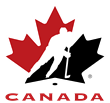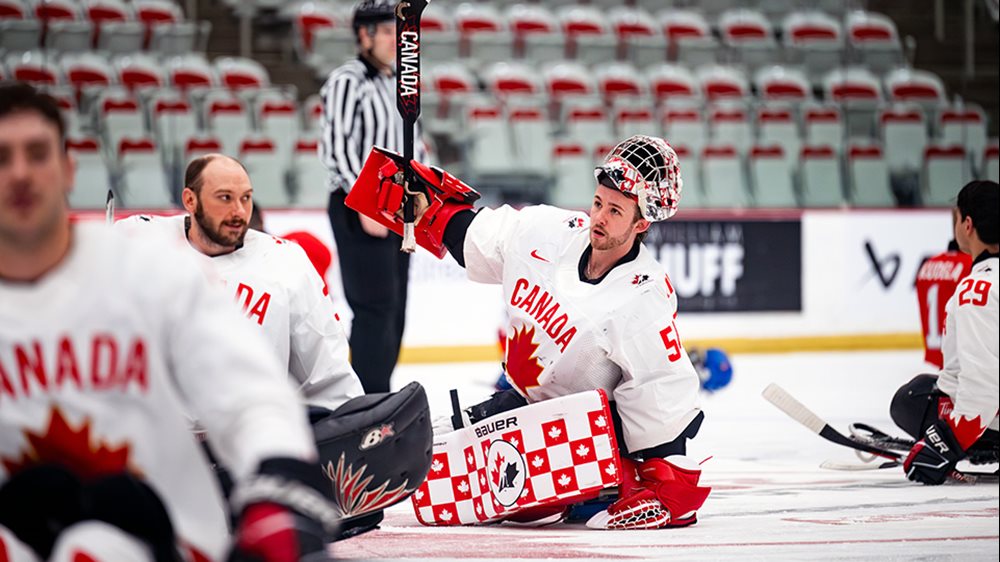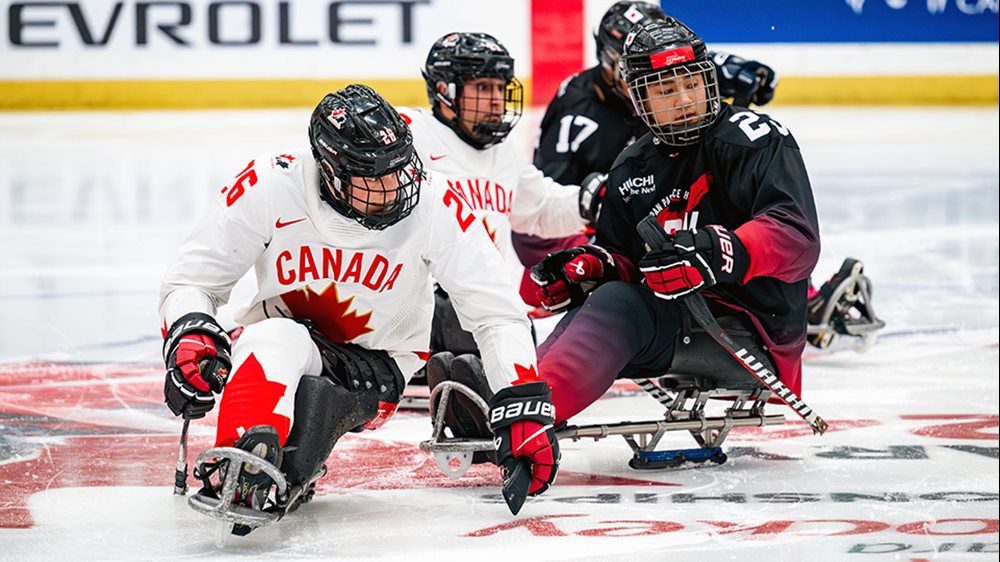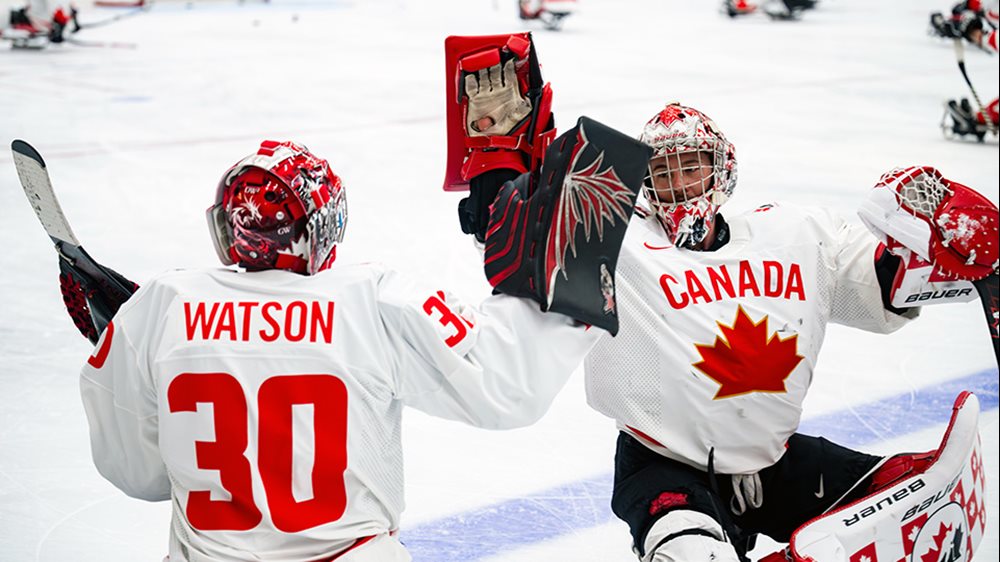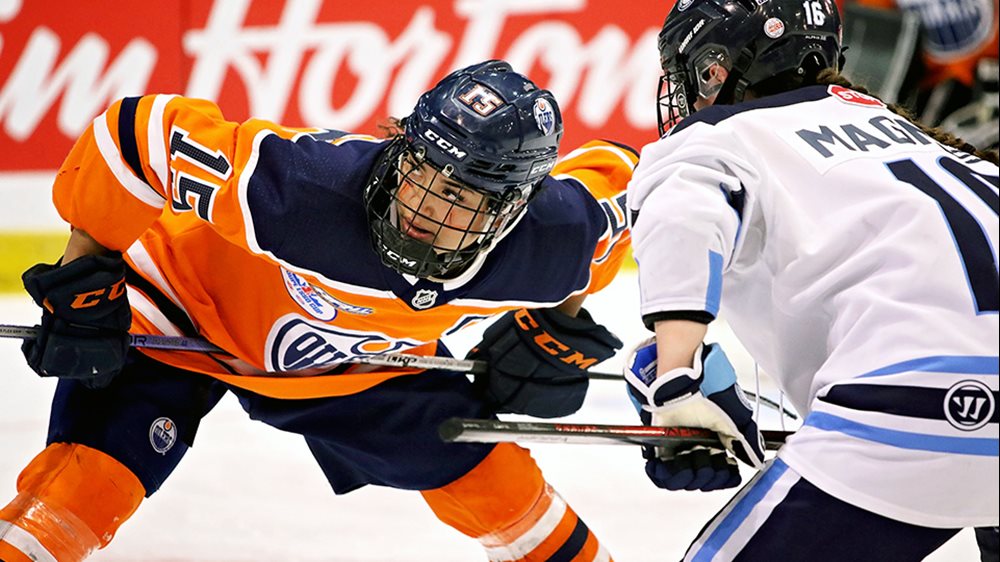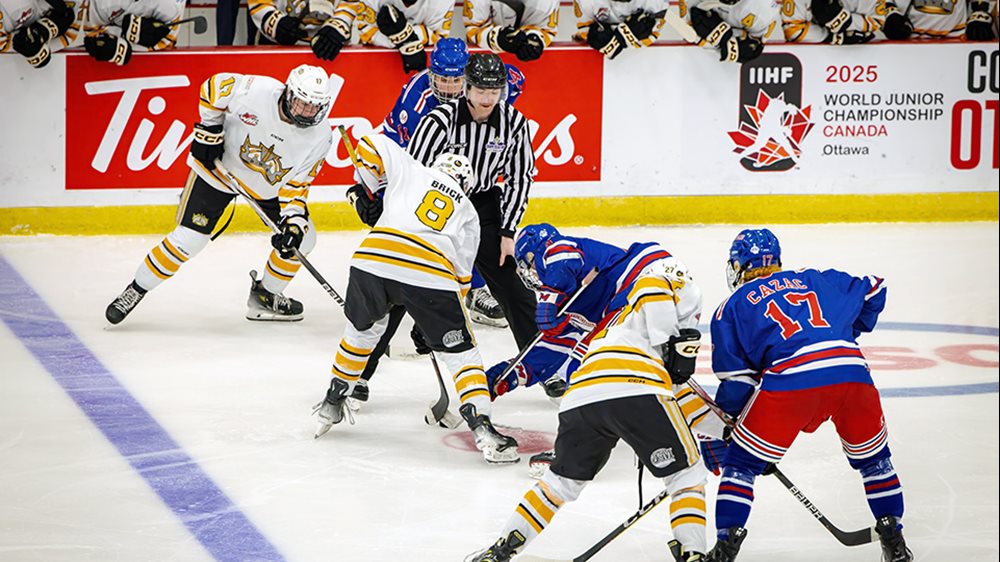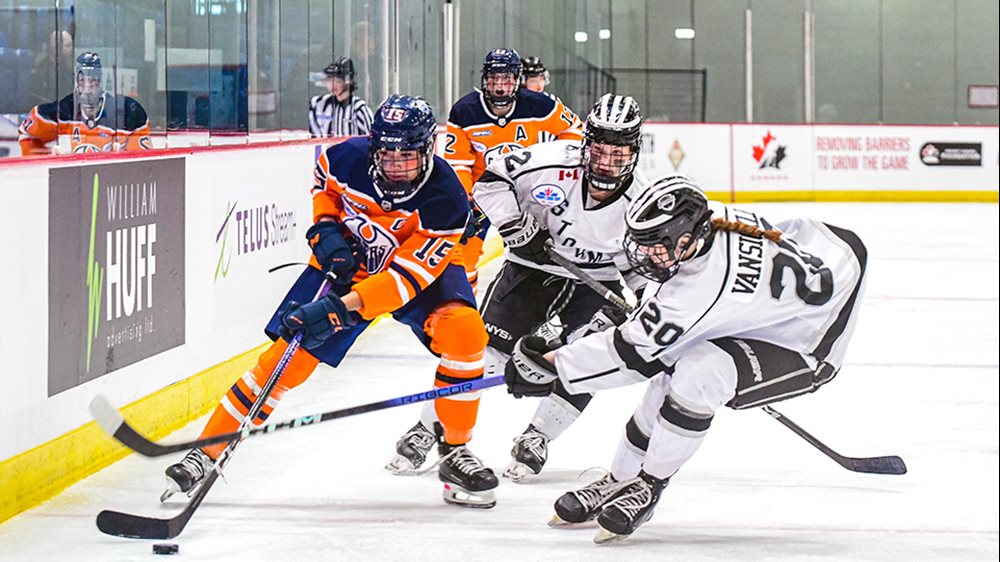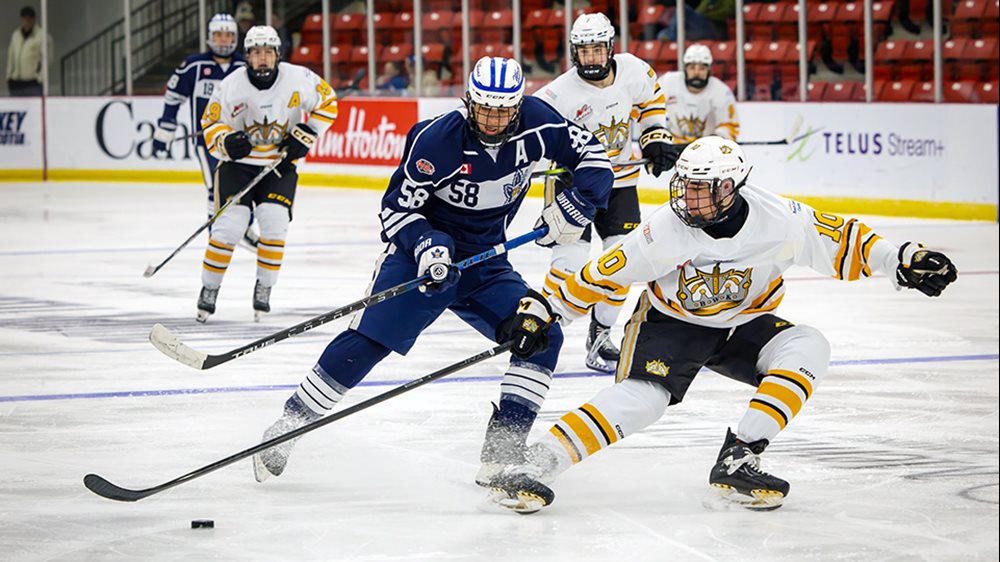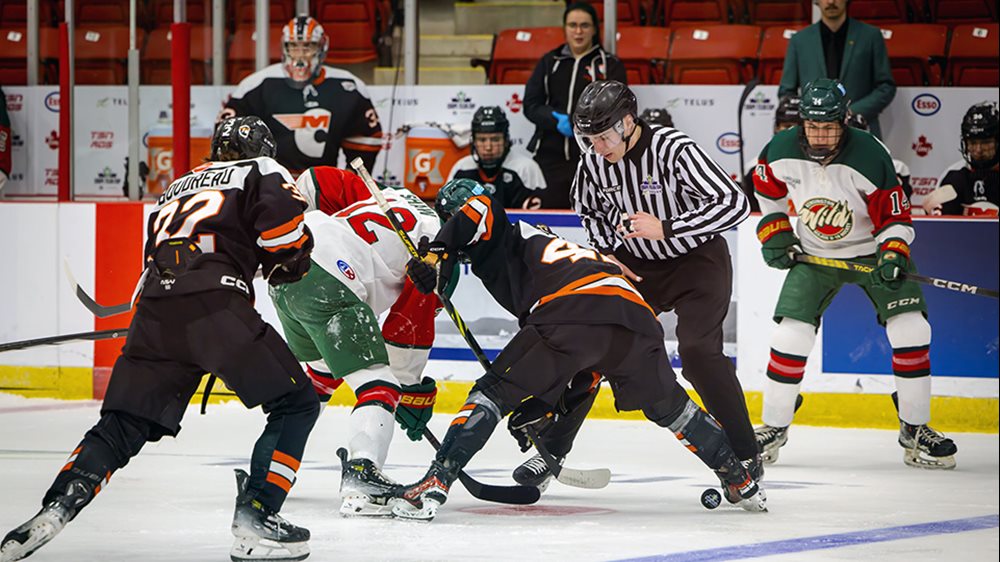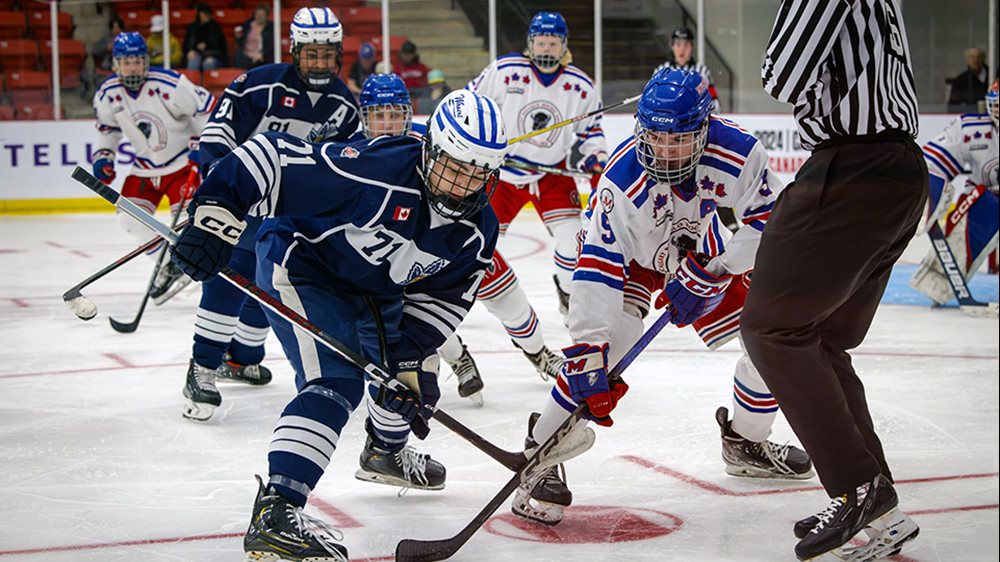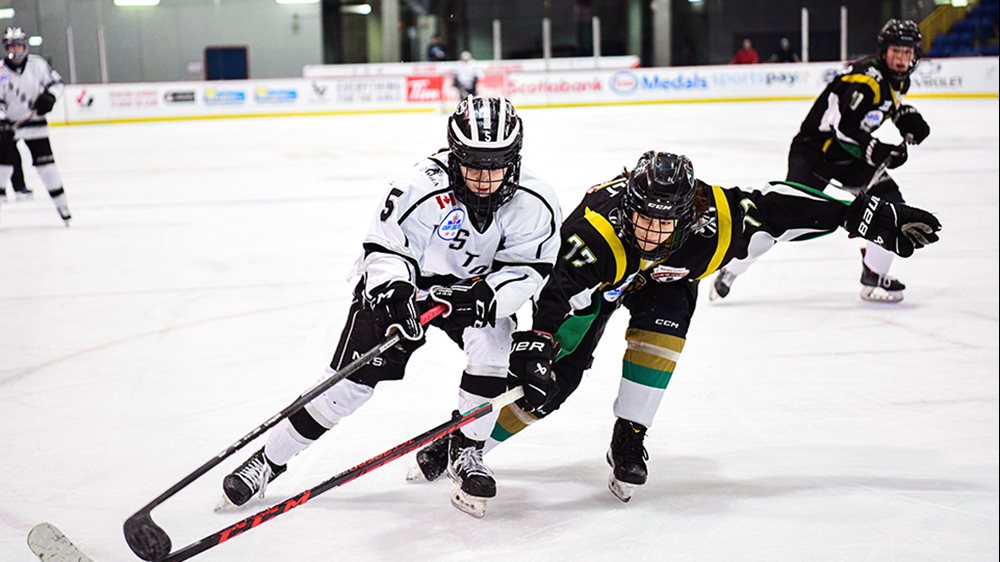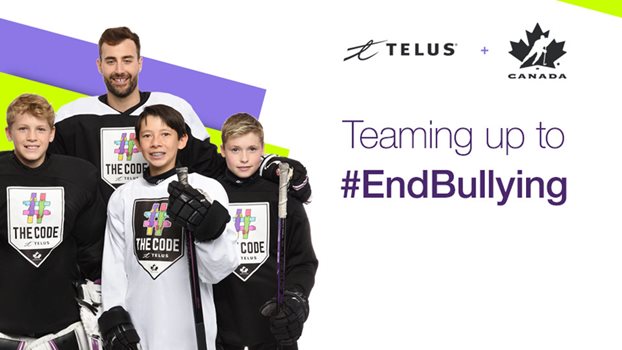
Teaming up to #EndBullying
TELUS and Hockey Canada launch The Code, an anti-bullying program designed specifically for the hockey community
Imagine if the best things about sport – ethics, honour, teamwork and sportsmanship – carried over to the online world.
Hockey Canada has teamed with TELUS on The Code, an anti-bullying program focusing on providing resources and skills for the hockey community to stay safe online and on the ice. The program will feature a pledge to #EndBullying, a playbook for behaviour on and off the ice, and engaging workshops.
To help spread the word, TELUS and Hockey Canada have teamed with an impressive roster of ambassadors – Olympic gold medallist and Hockey Hall of Fame inductee Hayley Wickenheiser, IIHF World Junior Championship and IIHF World Championship gold medallist Jordan Eberle, IIHF World Junior Championship gold medallist Max Comtois, Olympic silver medallist Jill Saulnier and Paralympic silver medallist Dominic Cozzolino.
“Being a part of The Code speaks beyond the game of hockey,” says Saulnier. “I’m excited to join forces with TELUS to take on the challenges of bullying in sport, help highlight awareness around the impact it can have and push what The Code truly means.”
Beginning this season, The Code will draw upon the robust workshop materials and content available through TELUS’ industry-leading educational digital media literacy program, TELUS Wise. Introduced in 2013, TELUS Wise offers free informative workshops and resources to help Canadians of all ages have a positive experience as digital citizens. TELUS Wise workshops and resources cover topics including protecting online security, privacy and reputation, rising above online bullying and using technology responsibly.
Now available online, The Code adult workshops are a resource for parents, coaches, administrators, volunteers and all interested adults. Impactful, engaging and informative, the workshops are designed to create positive social sportsmanship across Canada, where kind behaviour is encouraged online and on the ice.
In addition to the online resources, minor hockey teams across the country can do their part to #EndBullying by signing The Code and wearing helmet stickers (order here), showing their commitment to treating others with respect on and off the ice.
A premier marketing partner of Hockey Canada since 2004, TELUS has been a long-time supporter of the development and future success of young athletes throughout Canada. TELUS’ extensive partnership includes year-round integration with the IIHF World Junior Championship, IIHF Women’s World Championship and Hockey Canada national events, including title sponsorship of the TELUS Cup, Canada’s National Midget Championship.
The Code is just another example of how TELUS is aiding the journey through the game. To learn more, visit HockeyCanada.ca/TheCode.
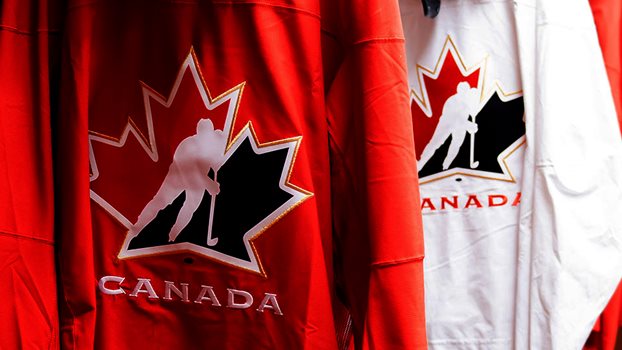
Hockey Canada publishes report on maltreatment in sanctioned hockey
Data expands on findings in last year’s inaugural report on Rule 11.4 – Discrimination
CALGARY, Alberta – Hockey Canada and its Members have published a Tracking Maltreatment in Sanctioned Hockey report, which includes nation-wide data collected during the 2022-23 season from two independent complaint management mechanisms and all rules in Section 11 of the Hockey Canada Playing Rules.
The information contained in this report is an important step in Hockey Canada’s ongoing efforts to better track, identify and respond to maltreatment in hockey.
In December 2022, Hockey Canada and its Members published a report of all incidents of verbal taunts, insults or intimidation based on discriminatory grounds which occurred during the 2021-22 season, under Rule 11.4 – Discrimination.
The Tracking Maltreatment in Sanctioned Hockey report includes a broader scope of tracked maltreatment behaviours, including:
• Complaint intake data from Hockey Canada’s Independent Third Party (ITP); • Ice hockey complaint intake data from the Office of the Sport Integrity Commissioner (OSIC); • Tracking of Rule 11.4 penalties and allegations from all 13 Members; • Data from a pilot project that tracked other types of Rule 11 penalties in specific Hockey Canada Member jurisdictions.
“The Tracking Maltreatment in Sanctioned Hockey report is critical in our efforts to identify and take action against egregious behaviours that have no place in hockey and sport in general,” said Natasha Johnston, vice-president of sport safety for Hockey Canada. “We will continue to be transparent in publicly sharing the data we collect with our Members and use the insights to better inform our collective actions moving forward.
“With our Members, we are committed to expanding reporting on maltreatment in sanctioned hockey during the 2023-24 season as well as working to prevent and address maltreatment behaviours in sanctioned hockey programming. As we continue to build greater awareness and facilitate greater opportunities and trust for individuals to come forward, it is anticipated that there will be an increase in maltreatment incidences being reported on and off the ice.”
Hockey Canada will continue to make national reports on maltreatment publicly available and accessible on an annual basis as part of its overall sport safety framework.
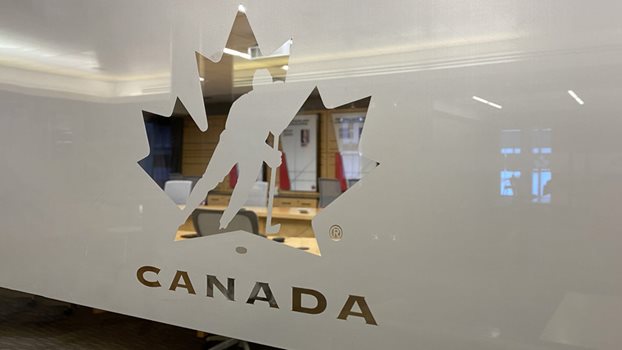
Hockey Canada adds two key staff
Natasha Johnston named director, sport safety; Marin Hickox hired as director, women and girls hockey
CALGARY, Alta. – Hockey Canada has announced that prominent Canadian sport executives Natasha Johnston and Marin Hickox have joined the organization to lead its strategies in safe sport and women and girls hockey, respectively.
“We are thrilled to welcome Natasha and Marin to Hockey Canada in these brand-new positions that focus on advancing two key strategic areas of our organization,” said Hockey Canada president and chief operating officer, Scott Smith. “They both have invaluable experience from across the sport industry and will both play critical roles to ensure hockey is a safe and inclusive sport for all participants.”
As director of sport safety, Johnston will oversee Hockey Canada’s safe sport portfolio, which includes developing sustainable solutions to address player safety and maltreatment. Johnston will also work with Hockey Canada’s 13 Members to deliver strategic initiatives that promote inclusion and provide participants from coast to coast to coast with positive hockey experiences for years to come.
Most recently the executive director of Ringette Canada, Johnston contributed to the Universal Code of Conduct to Prevent and Address Maltreatment in Sport as a national representative, and previously held progressive roles with the Canadian Centre for Ethics in Sport and Football Canada.
Hickox will lead the organization’s recruitment and retention efforts that support the continued sustainability of women’s and girls’ hockey programs across Canada, and drive a collaborative approach to increase the number of women in key roles within the hockey ecosystem, including in leadership, coaching and officiating.
In 2020, Hickox was a member of the women’s hockey task force for the inaugural Elite Women’s 3-on-3 game as part of National Hockey League (NHL) All-Star Weekend. The former Maple Leaf Sports & Entertainment and NHL marketing executive has also consulted for the Professional Women’s Hockey Players Association.
Johnston and Hickox have started their new positions with Hockey Canada, working from Ottawa and Toronto, respectively.
For more information on Hockey Canada, please visit HockeyCanada.ca, become a Hockey Canada Insider, or follow along on Facebook, Twitter and Instagram.
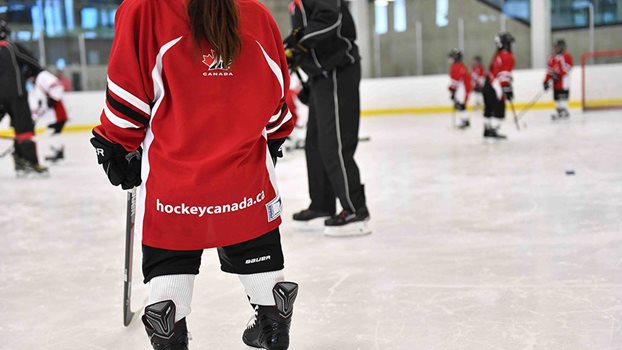
Hockey Canada announces new maltreatment playing rule for 2021-22 season
‘Section 11 – Maltreatment’ to place more emphasis on addressing incidents on ice
CALGARY, Alta. – In furthering its commitment to being leaders in safety and inclusivity, Hockey Canada has introduced an update to its rulebook to focus on recognizing and reporting incidents of maltreatment.
In a special meeting of the Members held on June 22, 2021, Hockey Canada and its 13 Members unanimously approved the adoption of Section 11 – Maltreatment in the Hockey Canada Rulebook starting this season, which includes bringing all forms of maltreatment under one section of the rulebook and providing guidelines for escalating penalties based on the severity of the inappropriate behaviour from players and team officials.
“Hockey Canada has made a firm commitment to making the game safe and inclusive for all who wish to participate, and the introduction of Section 11 provides our 13 Members, local hockey associations and officials across the country with clearly-defined criteria for enforcing rules related to many different forms of inappropriate conduct,” said Tom Renney, chief executive officer of Hockey Canada. “We believe this is a great step towards ensuring we limit the number of incidents that occur on and off the ice, and will allow players of all ages to enjoy our game free from abuse, discrimination, racism and all forms of maltreatment.”
As part of the new rules, certain infractions will include an indefinite suspension pending a hearing, as well mandatory hearings for repeat offenders. To read Section 11 of the Hockey Canada Rulebook in its entirety, please CLICK HERE.
In a further effort to eradicate discrimination of all forms from the game, Hockey Canada and its 13 Members also approved a new national reporting system for incidents of discriminatory taunts, insults or intimidation, both on the ice and outside of game play. The new rule and reporting system includes, but is not limited to, discrimination based on race, ethnic origin, skin colour, religion, age, sexual orientation, gender identity and disability.
The national reporting system will allow Hockey Canada and its 13 Members to have a better understanding of where maltreatment incidents occur and their frequency, and will allow the organization to take progressive steps to eliminating incidents through action and education. A number of tools and resources will also be provided to Hockey Canada’s 13 Members and local hockey associations across the country to help educate participants on maltreatment, including a Rule 11 officiating module and coaching resource document.
“The addition of Section 11 to the Hockey Canada Rulebook is a major step towards making the game more inclusive for all, but the reporting system will allow Hockey Canada and its 13 Members to proactively implement change through education and create a better understanding of where issues are occurring,” said Scott Smith, president and chief operating officer of Hockey Canada. “As we continue to learn and help foster an environment that is diverse, inclusive and safe, we believe the updated playing rule will greatly benefit all participants and allow more young children and adults to enjoy the game.”
For more information on Hockey Canada, please visit HockeyCanada.ca or follow along through social media on Facebook, Twitter and Instagram.
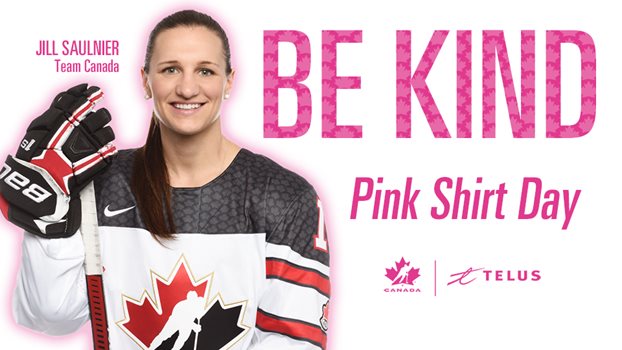
Just be kind
On Pink Shirt Day, Olympic silver medallist Jill Saulnier talks about getting more women and girls involved in sports, and what needs to be done to #EndBullying
Today is Pink Shirt Day. It’s a day dedicated to raising awareness of bullying and supporting programs that foster healthy self-esteem in children. Everyone is encouraged to wear pink to symbolize a lack of tolerance for bullying.
TELUS Wise stands in solidarity with Pink Shirt Day. The free digital literacy program empowers Canadians to stay safe in the digital world. Through informative workshops, articles and interviews, TELUS Wise helps Canadians shape positive experiences as digital citizens.
To mark Pink Shirt Day this year, TELUS Wise is spotlighting the issue of bullying in sport. It’s why Hockey Canada partnered with TELUS to create The Code. The Code aims to improve awareness about bullying within the hockey community and help hockey families stay safe online.
Jill Saulnier, a proud Code ambassador, sat down with TELUS Wise to share her perspectives. Jill was an Olympic silver medallist in 2018 and has played more than 100 games in a Team Canada jersey. She is currently training to represent Canada at the 2021 IIHF Women’s World Championship (which is being held in her hometown of Halifax) and the 2022 Olympics in Beijing.
Jill shares her insights and experiences regarding women and sport, bullying and sport, her involvement in The Code and why it’s so important to just be kind – at the rink, online and everywhere in between.
Q: How did you get involved in sports? What obstacles did you confront?
JS: Growing up in Halifax, we had a rink in our backyard. I started skating and playing hockey when I was five years old. It was a family affair. My mom and dad both took turns flooding the rink, so we always had a fresh sheet of ice. It was a mantra in our family – wake up, skate on the pond; go to school, come home and skate on the pond.
From a really young age, I had a relentless passion to have a hockey stick in my hand. When I watched the women win the 2002 Olympics, I made up my mind that I would do that someday. I kept skating and playing. There wasn’t a full girls’ team in Halifax, so by the time I was 14, I knew I had to leave Halifax if I wanted to get serious about my training. When I was 15, I went to train in the U.S. and that decision was a real turning point in my career. I then got invited to play for the national team, which brought me back to Canada. I joined the Professional Women’s Hockey Players Association (PWHPA) and every step of the way, I followed the opportunities to become the best athlete and best self I could be.
Q: According to the Canadian Women and Sport Survey (June 2020), 62% of Canadian girls are not participating in sport of any kind. Based on your experiences, what message do you have for Canadian girls and women about getting involved in and staying involved in sports?
JS: There is a real lack of visibility and opportunity for female athletes. Sometimes, there aren’t teams to play on. I’ve seen it firsthand. I always tell young girls to find a passion in sports – there are so many different options available. Experiment and find what you love to do. Sports have enriched my life in so many ways – it has been a huge source of confidence for me and I’ve made lifelong friends. To be successful in my sport, you need to be powerful and explosive. So to me, there is such beauty in women who are strong, healthy and love what they are doing. With social media, there are so many skewed messages and images about body type and body image. Playing sports changes that narrative and provides an alternative message. Strong is beautiful.
Q: The issue of bullying and sports is an ongoing concern. According to Childhelp, 40-50% of athletes have experienced anything from mild harassment to severe abuse in their sport of choice. What are your personal experiences with bullying and sport both offline and online?
JS: When I was younger, I didn’t experience bullying personally. I was dialed in to what I needed to do. If people tried to get in my way, I tuned them out to stay on track. I had great people around me who provided ongoing support, so nobody was trying to knock me off my path. Cyberbullying is so prevalent now. And I have experienced it. I’m proud of my accomplishments, but there have been times when I felt cyberbullied or was affected by negative comments online.
Sadly, it’s a trend with women and sports. There are people sitting anonymously behind screens trying to tear down strong, passionate people who are chasing their goals. Most athletes are strong enough to detach from that negativity and not give it any power. But there are times when someone sees something online that is upsetting or hurtful and then internalizes it – and athletes aren’t immune. Usually, people that bully others are really good at targeting insecurities. If it happens to you, it is important to reach out to a friend or family member and talk about your experience. Don’t let it steer you off your path. Acknowledge it, talk about it and find the support you need to let it go.
Q: What is The Code and when did you get involved?
JS: The Code tackles the issues of cyberbullying by offering workshops for coaches, players and families. I got involved in 2018. And I am humbled to work with TELUS and The Code team to inspire change. The values of The Code are really meaningful to me as an athlete. There is such a strong tie between sport and the digital world. It’s important to acknowledge these issues and give voice to them. I am very proud to be part of a platform that is educating people and making real change.
Q: What is your advice around how we can #EndBullying in sport?
JS: We need to use the platforms available to educate ourselves and be better. Cyberbullying can be really hurtful. In sports specifically, cyberbullying can affect how people feel and perform. It’s important to have a community of support and to learn skills and strategies to deal with cyberbullying in a healthy, productive way. I also think that properly-enforced zero-tolerance policies can go a long way in driving change and lessening the instances and impacts of bullying.
Q: Has COVID-19 impacted bullying in sports? How?
JS: Since the pandemic hit, we’ve all had a lot more time isolated and inside with our phones. As athletes, we can’t play, train or go to school and we don’t have the same challenges and schedule we’d normally have. So like most people, we are resorting to the internet to pass time. Comparing has been a big issue for a lot of athletes. There is this immense pressure to be better when you’re seeing what others are doing online. Our training has completely changed as well. Earlier this year, we completed our first Hockey Canada camp in a year. We were there for 14 days, with very strict protocols. Many of us had to work out in our hotel rooms. Right now, it comes down to attitude and focusing on making the best of every moment, no matter the situation.
Q: If you could share one message with kids and their parents about Pink Shirt Day, what would it be?
JS: Be kind. Making people around you feel good is so important. There are so many issues online and in our physical world when it comes to bullying. Instead of tearing people down, bring people up. That’s only going to make you a better person. We have so many challenges in our world, especially now. It’s more important than ever to just be kind. I’m incredibly fortunate to be surrounded by wonderful people and athletes. Positive, supportive people bring you up. Don’t let people behind a screen bring you down.
To learn more about staying safe in our digital world, please visit telus.com/wise for the latest resources and workshops available.
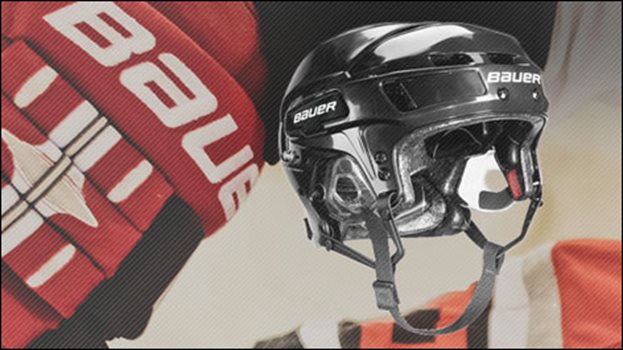
Hockey Safety Panel Formed By Industry Leaders to Conduct Live Broadcast on Safety Issues and Education
Bauer Hockey, USA Hockey and Hockey Canada join leading medical experts to continue education and awareness
ORLANDO, Fla. –Some of the most influential organizations in hockey will take part in the third Be Hockey Safe panel discussion to promote hockey safety and awareness. The discussion, led by Bauer Hockey, USA Hockey and Hockey Canada, will be broadcast live and linked to from Bauer.com, USAHockey.com and HockeyCanada.ca on Tuesday, Oct. 25 at 8 a.m. ET.
Bauer Hockey initiated the panel in an effort to strengthen communication surrounding safety issues such as concussion awareness and management, and injury prevention. The safety panel includes representatives from Bauer Hockey, USA Hockey and Hockey Canada as well as leaders in the medical community. The panel, which first convened in 2010, will hold its third public discussion at Bauer Hockey’s BauerWorld event in Orlando.
“The goal of the Be Hockey Safe panel is to promote the sport of hockey at all levels through better education and communication of the safety issues faced in today’s game,” said Ken Covo, senior director of research and development for Bauer Hockey, who will co-chair the hockey safety panel. “We are excited to bring the panel back together to discuss those issues that our sport continues to face.”
The panel discussion will feature a segment on injury mechanics, and a look into what truly causes concussions as well as the myths and realities surrounding the injury itself. The panel will also discuss new rule changes adopted by both USA Hockey and Hockey Canada to address the continued emphasis on head safety in hockey.
The members of the Be Hockey Safe panel that will take part in the discussion include:
Mike Bertsch – USA Hockey:
In his role as assistant executive director, marketing and communications, Mike works closely with USA Hockey’s membership and leads efforts to increase safety communication throughout the organization. In addition, Mike brings a wealth of hockey coaching knowledge to the panel having coached at both the high school and NCAA Division I levels.
Mark Lovell, PH.D – ImPact Applications, Inc.
Mark is the co-creator of the ImPact Test, the first, most-widely used, and most scientifically validated computerized concussion evaluation system. ImPact is currently utilized by every team in the National Hockey League and the National Football League, as well as numerous teams in Major League Baseball, the National Basketball Association and several other leagues. Mark brings more than 26 years of concussion management experience to the safety panel.
Todd Jackson – Hockey Canada
Todd is the senior manager for insurance and member services at Hockey Canada and brings more than 30 years of experience in hockey safety to the panel. In his role at Hockey Canada, Todd oversees safety and risk management initiatives as well as the components of that national insurance program. In addition, Todd has served as equipment manager for numerous teams, including Canada’s National Women’s Team.
Ken Covo – Bauer Hockey – Co-Chair
Ken is the senior director of research and development for Bauer Hockey. The graduate of McGill University brings more than 15 years of hockey product development experience to the panel and has coached and played hockey at various levels.
Larry Weber – Bauer Hockey – Co-Chair
Larry serves as the director of risk management for Bauer Hockey and has been with the company for more than 14 years. In his role, Larry is deeply involved with safety issues in the sport of hockey and works closely with Bauer’s research, design and development teams.
The Be Hockey Safepanel will gather numerous times throughout the year and publish information for the hockey community that will be distributed online, in-store at hockey specialty retailers across North America and at the grassroots level. In addition to providing readily accessible information, the panel will examine current safety standards and guidelines and recommend enhancements to meet today’s needs as well as gather insight from various age groups and playing levels. Bauer Hockey will also look to leverage the panel’s findings to help guide future product development and enhancements.
To access the live broadcast of Tuesday’s panel discussion, visit Bauer.com, USAHockey.com or HockeyCanada.ca.
ABOUT BAUER HOCKEY
Bauer Hockey is the world's most recognized designer, marketer and manufacturer of hockey equipment. Founded
in Kitchener, Ont., in 1927, Bauer developed the first skate with a blade attached to a boot, forever
changing the game of hockey. Since then, Bauer has continued to develop the most sought after products in the
industry, including the widely successful Supreme® and Vapor® lines of products. Bauer Hockey, Maverik
Lacrosse and Mission Roller Hockey are brands under Bauer Performance Sports, a publically traded company on
the Toronto Stock Exchange (BAU).
ABOUT BAUER PERFORMANCE SPORTS LTD.
Bauer Performance Sports Ltd. (TSX: BAU) is a leading developer and manufacturer of ice hockey, roller
hockey, and lacrosse equipment as well as related apparel. The company has the most recognized and strongest
brand in the ice hockey equipment industry, and holds the top market share position in both ice and roller
hockey. Its products are marketed under the Bauer Hockey, Mission Roller Hockey and Maverik Lacrosse brand
names and are distributed by sales representatives and independent distributors throughout the world. Bauer
Performance Sports is focused on building its leadership position and growing market share in all product
categories through continued innovation at every level.
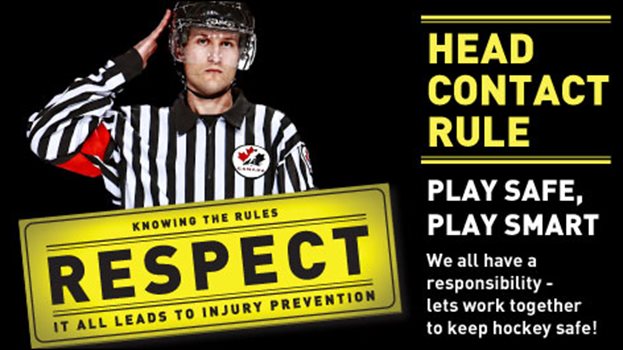
Hockey Canada Launches Website Dedicated to New Head Contact Rule for 2011-12 Minor Hockey Season
www.HockeyCanada.ca/HeadContactRule
CALGARY, Alta. –Hockey Canada announced Thursday the launching of a new website, www.HockeyCanada.ca/HeadContactRule, dedicated to the implementation of the new head contact rule for the 2011-12 season in female and minor hockey across the country.
The new head contact rule was unanimously approved at Hockey Canada’s 2011 annual general meeting, held in May in Calgary, Alta. The new rule calls for zero tolerance on any head contact in minor and female hockey in all 13 Hockey Canada branches.
As more than 550,000 minor hockey players from coast-to-coast take to the ice for another hockey season, Hockey Canada’s special web platform will provide numerous resources for minor hockey associations, participants, parents and volunteers to assist with the implementation of the new head contact rule. Resources posted at www.HockeyCanada.ca/HeadContactRule include:
- Hockey Canada’s Head Contact Rule 6.5
- Hockey Canada videos, including:
- Examples of acceptable and unacceptable contact under the new rule;
- An equipment fitting demonstration;
- Printable resources, such as:
- A head contact rules poster;
- A head contact awareness handout;
- The Hockey Canada approved concussion card;
- The Hockey Canada Rule Book;
- The Think First SMART HOCKEY video
“We encourage all of our minor hockey associations, along with their team managers and coaches, to take a proactive step to add messaging about the new rule and concussion awareness to any pre-season or early season meetings,” said Hockey Canada chairman of the board Michael Bruni. “It is vital that coaches work with their team staff, players and parents to outline the head contact rule definitions and expectations of play.”
“Parents and players at the female and minor levels need to know that contact to the head will not be tolerated,” said Paul Carson, Hockey Canada’s vice-president of hockey development. “Team coaches should also work with team safety personnel and trainers to educate parents on the identification of concussions and responsible follow-up if a player suffers a concussion. Tools have been developed to support team meetings early in the season.”

Hockey Canada's New Head Contact Rule
Approved at the Hockey Canada Annual General Meeting in Calgary, Alta., in May, Hockey Canada’s new head contact rules are zero tolerance, implemented to cut down on the number of head injuries suffered in the game.
The new rule will be in effect immediately, beginning with the start of the 2011-12 season.
Below is the wording included in the Hockey Canada Rule Book, outlining when the penalty is to be called
and what penalty is to be assessed.
Rule 6.5 – Head Contact
(a) In minor hockey and female hockey, a minor penalty shall be assessed to any player who accidentally contacts an opponent in the head, face or neck with his stick or any part of the player’s body or equipment.
(b) In minor hockey and female hockey, a double minor penalty or a major and a game misconduct penalty, at the discretion of the referee and based on the degree of violence of impact shall be assessed to any player who intentionally contacts an opponent in the head, face or neck with her stick or any part of the player’s body or equipment.
(c) In junior hockey and senior hockey, a minor and a misconduct penalty, or a major and a game misconduct penalty, at the discretion of the referee based on the degree of violence of impact, shall be assessed to any player who checks an opponent in the head in any manner.
(d) A major and a game misconduct penalty, or a match penalty shall be assessed any player who injures an opponent under this rule.
(e) A match penalty shall be assessed any player who deliberately attempts to injure or deliberately injures an opponent under this rule.
Note: All contact above the shoulders (neck, face and head) is to be called Head Contact under one of the above (In minor hockey and female hockey).
Clarifications on Head Contact for junior hockey and senior hockey only
Referees should be aware of the tragic consequences of head injuries and concussions and strictly enforce the rule. It is the responsibility of players, team officials and referees to make every attempt possible to reduce the incident of this frightful injury. Team officials can teach players legitimate methods of checking an opponent, while players can be educated to the dangers of checks to the head. The referee has the responsibility to penalize players who contact an opponent in the head. If the referees are consistent and strict in calling infractions that may lead to concussions, then along with the cooperation of players and team officials, these type of fouls and the chances of a player suffering such injuries can be significantly reduced. The Head Contact penalty is based on the “degree of violence of impact” and can be defined in three categories: minimal, moderate and severe.
Minimal impact would be called under other appropriate rules – elbowing, high-sticking, roughing, roughing after the whistle, etc. A glancing blow or minimal impact to the head where a penalty is warranted.
Moderate impact would be a more significant degree of violence without injury that warrants a minor and misconduct penalty under the Head Contact rule.
Severe impact would be a high degree of violence, with or without injury, which warrants a major and game misconduct or a match penalty, at the discretion of the referee under the Head Contact rule.
What previously may have been considered a legal check with a shoulder check to the head shall now be penalized as Head Contact if moderate or severe impact is made. These Head Contact infractions can occur anywhere on the playing surface as a result of the initial contact to the head. Head Contact could also be the result of an open ice hit, with or without the fouled player’s head being down. Body checking has not be been removed from the game, but high hits or targeting the head shall be penalized. A fight is still to be called a fight, not Head Contact. Referees are to strictly enforce penalties that call for infractions as a result of low hits as these types of infractions may increase. The penalty signal for Head Contact will be patting flat (open palm) of the non-whistle hand on the side of the head.
Hockey Canada to Host Concussion Awareness Seminar in Regina, Sask.
CALGARY, Alta. – Hockey Canada, in partnership with the Dr. Tom Pashby Sports Safety Fund and Think First Canada, is hosting a concussion awareness seminar at the Hotel Saskatchewan Radisson Plaza in Regina, Sask. on Saturday, December 12.
Physicians, coaches, managers, trainers, parents, players over 16 years of age, nurses, therapists, chiropractors and dentists are invited to attend the seminar free of charge to discuss issues relating to concussions, such as diagnosis, treatment and management of concussions, return to play guidelines and protective equipment.
A number of speakers will be a part of the seminar, including:
Dr. Pat Bishop – kinesiologist, Canadian Standards Association
Karen Decker – Hockey Canada Safety Program
Paul Dennis – advanced sport psychology instructor, University of Toronto and York University
Dr. Chris Ekong – clinical professor of surgery (neurosurgery), University of Saskatchewan, and head of division of neurosurgery, Regina Health Region, Think First Canada
Gary Fisch – registered practicing nurse, Penetang Mental Health Centre, and master course conductor, Hockey Canada trainer’s program
Dr. Michael Nicholls – Canadian Academy of Sport Medicine
Dr. Paul Piccininni – dentist, International Ice Hockey Federation
Dr. Jason Smith – orthopedic surgeon, Toronto Maple Leafs and Toronto Blue Jays
Dr. Charles Tator – neurosurgeon, Think First Canada
Dr. Howard Winston – Canadian Academy of Sport Medicine
In addition, former NHLer Jamie Heward will speak at the seminar. A Regina native, Heward suffered six concussions during his pro career, and knows all too well the repercussions concussions can cause if not properly diagnosed and treated.
There is no charge to attend the seminar.
CLICK HERE to find out more about concussions, including symptoms and prevention. For further information, visit www.drpashby.ca or www.thinkfirst.ca.
For more information or to set up interviews regarding the Hockey Canada concussion awareness seminar, contact Lois Kalchman by phone at 416-323-3778 or 416-319-3778, or by email at [email protected].
Hockey Canada Concussion Seminar
Canada chief medical officer Dr. Mark Aubry was one of the speakers at the extremely successful first-ever Hockey Canada Concussion Seminar that was held on Saturday November 3 at Scotiabank Place, the home of the Ottawa Senators.
The session was held in memory of Dr. Tom Pashby a pioneer in safety in hockey not only in Canada but around the world. He has been inducted into Canada Sports Hall of Fame and is a member of the Order of Canada for the work he has done.
More than 340 people heard Dr. Aubry, also Chief Medical Officer for the International Ice Hockey Federation and a physician with the Senators, along with sports medicine specialist Dr. James Kissick and concussion guru and Think First Canada president Dr. Karen Johnston all speak on the diagnosis, treatment and return to play protocol. Toronto Maple Leaf psychologist Paul Dennis outlined some of the difficult self-imposed and peer pressures that face concussed athletes as well as the urgency to return to play created by parents and coaches.
Dentist Dr. Paul Piccininni, also a member of the IIHF medical committee, spoke on the role of mouthguards in the prevention of dental injuries and concussions while Dr. Pat Bishop chair of the Canadian Standards Association committee that certifies hockey equipment explained about certification and said that equipment must fit properly to protect the player and was explicit that helmets do not necessarily prevent concussions.
“I was very impressed with the seminar and equally impressed with the turnout and interest shown by those
in the audience, particularly the trainers,” Dr. Aubry said.
“I was touched,” he said and amazed that more than 150 trainers the first line of defense in safety in hockey
, joined physicians, managers, therapists, coaches and so on who got out of bed to be at the rink before the
early-morning start of 7:45.
“The trainers are the safety people on the benches and cared enough for the players-athletes to attend,” he said. “The content of the seminar says it all. It revolved around the first two Concussion Statements developed in Vienna and Prague.” He mentioned they were told of ongoing research that has been done since then suggesting there may be a third statement in the not to distant future. “The subjects dealt with what we (as sports medicine physicians and on-ice safety persons) treat on a daily basis on the bench and on the ice,” he said.
The audience stayed throughout the three hour session with more than half remaining for the hour question and answer period. The panel, consisting of the above people as well as co-chairs neurosurgeon Dr. Charles Tator and sports medicine specialist Dr. Howard Winston, answered all. “The questions were most interesting,” Dr. Aubry said. “Many dealt with everyday issues that really had no simple answers. Again they dealt with subjects that touched everyone in the room.”
For a report on the event itself, click on
http://www.thestar.com/Sports/GTHL/article/273977
and for more information on the diagnosis, treatment and return to play go to www.hockeycanada.ca, www.thinkfirstcanada.ca or www.drpashby.ca
For more information: |
- <
- >
